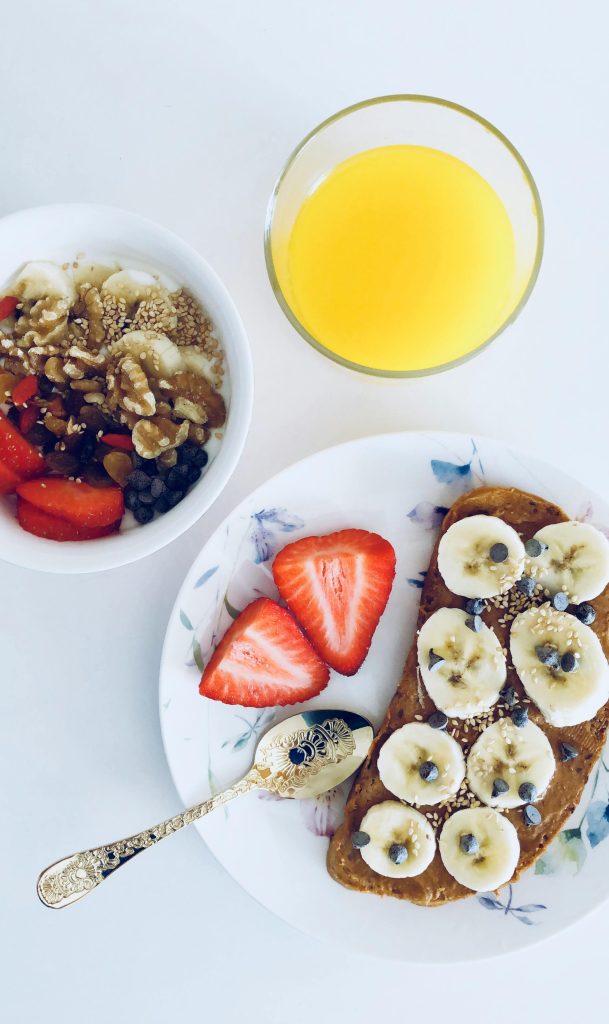Are you looking to improve your health through whole food nutrition?
If you’re just starting on your journey to better health and wellness, incorporating whole food nutrition into your diet can make a significant difference. Whole foods are packed with essential nutrients that can boost your immune system, improve your energy levels, and help you maintain a healthy weight. In this article, we’ll guide you through the basics of whole food nutrition, so you can start reaping the benefits of a healthy diet.
What are whole foods?
Whole foods are foods that are in their natural state, without any processing or refinement. This includes fruits, vegetables, whole grains, nuts, seeds, and legumes. These foods are minimally processed and free from added sugars, preservatives, and additives. By consuming whole foods, you give your body the essential vitamins, minerals, and antioxidants it needs to function at its best.
How can whole foods benefit your health?
Eating a diet rich in whole foods can have numerous health benefits. Whole foods are full of vitamins, minerals, and fiber, which are essential for maintaining optimal health. The nutrients found in whole foods can help reduce your risk of chronic diseases such as heart disease, diabetes, and cancer. Additionally, whole foods are more filling and satisfying than processed foods, making it easier to maintain a healthy weight.
How to incorporate whole foods into your diet
Transitioning to a whole foods diet doesn’t have to be overwhelming. By making small changes to your eating habits, you can gradually incorporate more whole foods into your meals. Here are some simple tips to help you get started:
1. Start by adding more fruits and vegetables to your diet
Fruits and vegetables are rich in vitamins, minerals, and antioxidants, making them essential components of a healthy diet. Aim to fill half your plate with fruits and vegetables at every meal. You can also snack on fresh fruits or vegetables throughout the day to increase your intake.
2. Choose whole grains over refined grains
Whole grains, such as brown rice, quinoa, and whole wheat bread, are more nutritious than refined grains. They are rich in fiber, which can help regulate your digestion and keep you feeling full. Replace white rice, pasta, and bread with whole grain alternatives to boost your nutrient intake.
3. Include a source of protein in every meal
Protein is essential for building and repairing tissues in the body. Incorporate a source of protein, such as beans, lentils, tofu, or lean meats, into every meal to support your overall health. Protein can also help you feel fuller for longer, reducing the likelihood of unhealthy snacking.
4. Snack on nuts and seeds
Nuts and seeds are excellent sources of healthy fats, protein, and fiber. Keep a stash of nuts and seeds on hand for a quick and nutritious snack. You can also sprinkle them on salads, yogurt, or oatmeal for added texture and flavor.
5. Limit processed foods and added sugars
Processed foods are often high in unhealthy fats, sugars, and additives that can negatively impact your health. Try to minimize your consumption of processed foods and opt for whole food alternatives whenever possible. Pay attention to food labels and ingredients lists to make informed choices about the foods you eat.

Sample whole food meal plan
Creating a meal plan can help you incorporate more whole foods into your diet and ensure you’re getting a balanced mix of nutrients. Here’s a sample meal plan to get you started:
| Meal | Food |
|---|---|
| Breakfast | Oatmeal topped with fresh berries and nuts |
| Greek yogurt with honey and sliced almonds | |
| Lunch | Quinoa salad with chickpeas, vegetables, and feta |
| Mixed greens with grilled chicken and avocado | |
| Dinner | Baked salmon with roasted sweet potatoes |
| Lentil soup with whole grain bread |
Tips for success
Transitioning to a whole foods diet takes time and effort, but the rewards are well worth it. Here are some additional tips to help you succeed on your journey to better health:
1. Plan your meals and snacks in advance
By planning your meals and snacks ahead of time, you can ensure you have healthy options available when hunger strikes. Prepare food in batch and store them in portion-sized containers for easy access throughout the week.
2. Stay hydrated
Water is essential for overall health and wellbeing. Aim to drink at least 8 glasses of water per day to stay hydrated and support your body’s functions. You can also enjoy herbal teas, infused water, or coconut water for added hydration.
3. Experiment with new recipes and flavors
Eating whole foods doesn’t have to be boring. Experiment with new recipes, ingredients, and cooking methods to keep things interesting. Try out different herbs, spices, and seasonings to enhance the flavors of your dishes.
4. Listen to your body
Pay attention to how your body responds to the foods you eat. Notice if certain foods make you feel energized, satisfied, or sluggish. Your body knows best what it needs, so listen to its cues and adjust your diet accordingly.
5. Seek support from others
Embarking on a new health journey can be challenging, but you don’t have to do it alone. Seek support from friends, family, or online communities who share your goals and values. Surround yourself with positive influences that encourage and motivate you to stay on track.

Final thoughts
Incorporating whole food nutrition into your diet is a powerful way to improve your overall health and wellbeing. By focusing on whole, nutrient-dense foods and minimizing processed foods, you can nourish your body with the essential nutrients it needs to thrive. Remember, small changes over time can lead to significant improvements in your health. Start by making simple swaps in your diet and gradually build upon your progress. Your body will thank you for the care and attention you give it through whole food nutrition.
Remember, every step you take towards a healthier diet is a step towards a healthier and happier you!
Related Content
- The Ultimate Guide to Natural Whole Food Nutrition (2025): 7 Powerful Tips for Optimal Health
- How to Build a Whole Foods Meal Plan for Athletes
- Discover the Top 10 Natural Whole Food Supplements for Optimal Health in 2025
- The Importance of Whole Foods in a Healthy Diet: A Detailed Overview
- Top Superfoods that are Nutrient Dense







